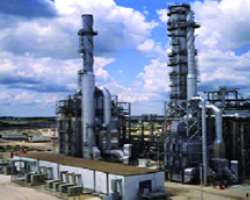FUEL SUBSIDY: FG COURTS NEW INVESTORS ON PRIVATE REFINERIES

Ahead of the planned removal of subsidies on petroleum products, the Federal Government is wooing fresh investors that will put down money into the construction of new refineries to ease the burden and reduce cost on imported products under a price deregulated regime.
'We have been talking with some investors - the ones that already have licences and new ones - so that they can come in immediately and build new refineries if the deregulation policy sails through; for now we are dialoguing with all stakeholders on the subject,' a top official in the Presidency told Daily Sun.
The Federal Government had hinted it might jettison the regime of subsidizing cost on petroleum products, notably petrol, as from 2012 to free up more funds in that year's budget for capital expenditure. The government said its budget on subsidy was escalating and hitting the N1trillion mark, a trend it described as inimical to the economy.
The official who spoke with Daily Sun said the discussions with prospective investors in refineries centred not only on how to assist them build and market products in Nigeria, but also how to export products outside the country.
'In our discussions with investors, we are not just looking at how to create the necessary environment for them to build and market their products in Nigeria, but we are even exploring ways whereby these products can be exported to markets in the West African sub-region and the United States of America,' said the official who preferred to remain anonymous.
'We have told them how easy it is for a Nigerian refiner to export finished products to the U.S and make more money because it's a straight route from Nigeria across the Atlantic Ocean nearer to any other country that supplies fuel to the U.S. and Nigeria's crude is also much more cheaper to refine because of its low sulphur content.
'So any investors coming to Nigeria has a lot of advantage in the competitiveness of the price of his end-products and this is because of the sweet crude we are trading with them, the local market which is huge and sustaining, the neighbouring markets in the sub-region and the larger market in the U.S.
'These are some of the facts we are putting down to investors and they know the advantages. The discouraging factor has always been the issue of deregulating the industry so that market forces determine price and they are able to re-coup their investments, and this is exactly what government intends to offer them through the removal of fuel subsidy,' the official said.
In Nigeria, given the absence of functional refineries which makes the country a net importer of products, subsidy removal translates to an immediate increase in pump price of petroleum products, notably on petrol and kerosene, the two products currently being subsidized by the government.
Diesel and aviation kerosene businesses had long been deregulated with prices soaring higher and higher everyday with trends in the international market.
